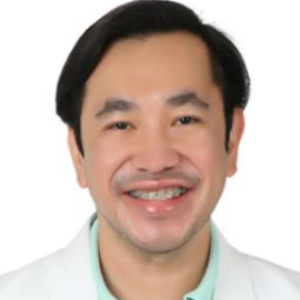Title : The effect of dysfunctional families on the outcomes of drug treatment and rehabilitation among females with substance use disorders confined in a government-run residential facility
Abstract:
High relapse rate was seen among drug dependents after rehabilitation. Poor motivation is one of the reasons why patients do not engage in drug rehabilitation programs. Outcomes in the treatment of Drug addiction can employ the stages of change model to assess patients’ motivation to change. There is a high degree of relationship between motivated patients in achieving higher stages of change versus those who were not motivated. Family relationship can affect addictive behaviors and family functioning can be a predictor of motivation and treatment outcome.
Objectives: This study was conducted to determine the association of dysfunctional families among female drug dependents and their outcomes from their treatment and rehabilitation upon 6 months completion in the residential program from a government-run residential facility located in Mandaue City, Philippines. Subjects: Of the 57 admitted patients in the residential facility, 46 completed the study and 11 were excluded.
Setting: The study was conducted at Department of Health- Treatment and Rehabilitation Center-Cebu, a facility for female drug dependents located in Mandaue City. Design: This is a cross-sectional study between functional and dysfunctional family relationships among patients with severe substance abuse disorder. The patients were grouped according to their responses in the validated questionnaire of Family APGAR tool designed to assess the presence of dysfunctional family relationship.
Data Collection: Information checklist and URICA results were collected through chart and records review while the Family APGAR assessment was done through assisted interviews.
Results: 71.4% of the participants have dysfunctional families, while 63% of them of participants were still in the pre-contemplation and contemplation stages of change after upon completion of the 6 months residential rehabilitation program. Female drug dependents with dysfunctional families had the highest prevalence of pre-contemplation and contemplation stages. On the contrary, female drug dependents with functional families were mostly found to be in the preparation stage and action stage. Analysis on family functionality and outcomes of treatment was found to be statistically significant (Likelihood ratio= 30.1, p-value = 0.000), the study showed that female drug dependents with dysfunctional families were more likely to remain unchanged after their treatment and rehabilitation compared to those with functional families which means family functionality of the patient influences the outcome of their treatment and rehabilitation. Drug treatment outcome is influenced by family functioning with unfavorable results in drug treatment and rehabilitation seen among patients with dysfunctional families. Conclusion: Drug treatment outcome is influenced by family functioning with unfavorable results in drug treatment and rehabilitation seen among patients with dysfunctional families.
Audience Take Away Notes:
- This paper tackles about the perceived family functionality (patient’s satisfaction on family support) among admitted female drug dependent in a rehabilitation facility, and how it affects the outcome or success in their rehabilitation after 6 months.
- This study looks into the influences of family dynamics of families with substance addiction problem in the treatment outcome. Addressing family problem or resolving family issues may improve the treatment process but it is important to assess the patient’s level of accepting and acknowledging family love and support from her family or love ones.
- This will bring about the understanding of family dynamics in the evolution of drug addiction; and how the family resolves issues related to emotional support and in overcoming hindrances to the overall sobriety of the individual with addiction. It will help interventionists and counsellor in redirecting the pathways in treatment process of drug addiction and it will guide case managers in their treatment planning.




